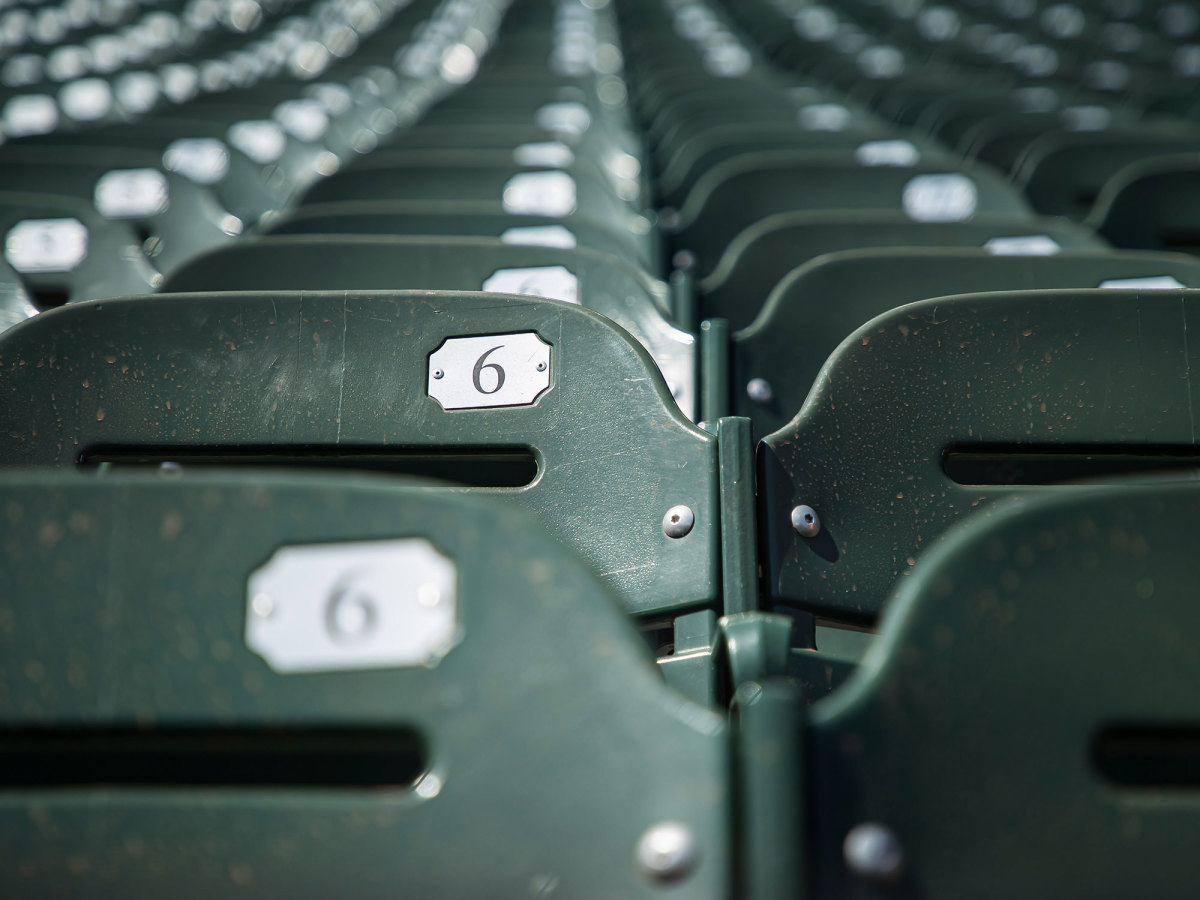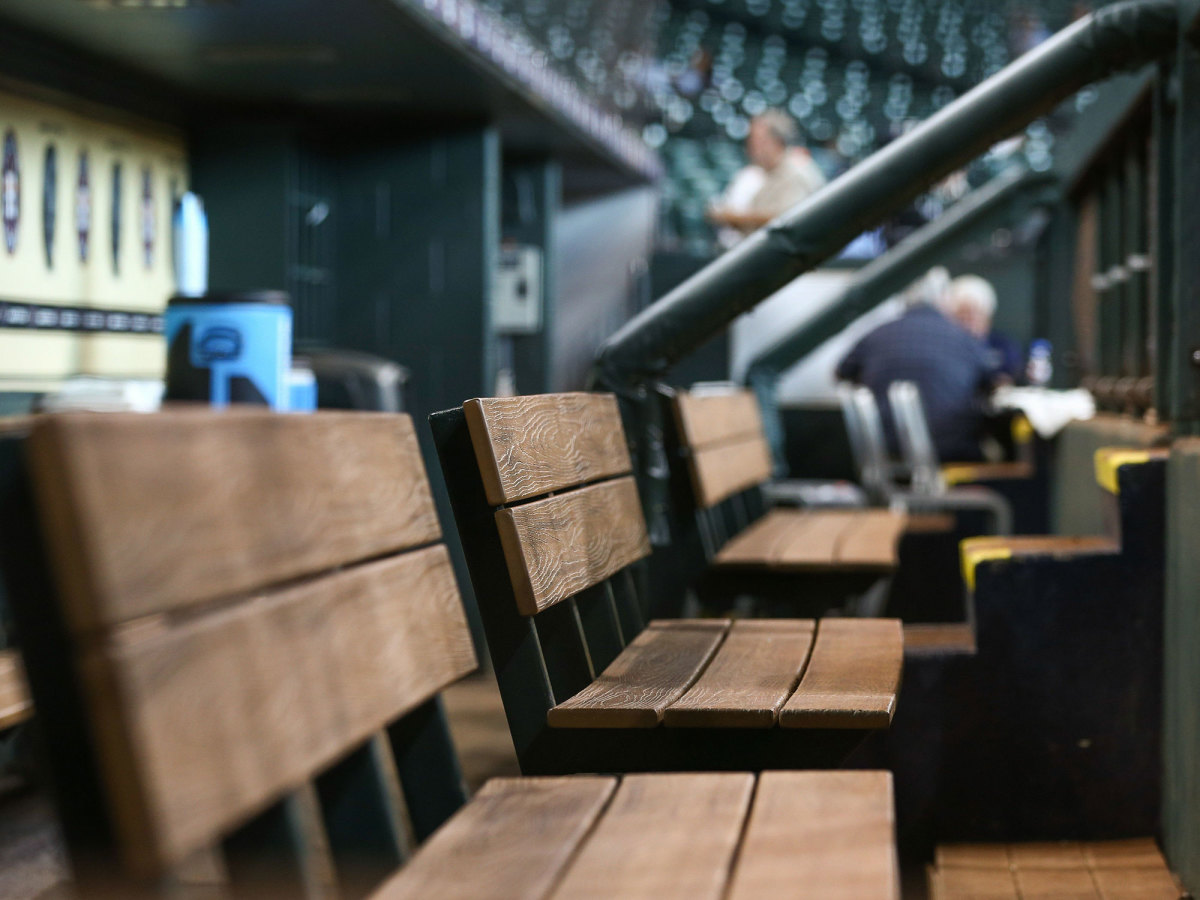Should MLB Play Without Fans?
We don't know when baseball will return. We don't know if baseball will return. Baseball does not know when baseball will return. But if the quickest route to beginning the season is playing games without fans, should MLB jump at the opportunity? SI's MLB staff weighs in below.
Tom Verducci
What sounds like a good idea to begin to give people a diversion and a small sense of normalcy is full of challenges. In Japan they began playing practice games in empty ballparks. Within a week three players on one team tested positive for the coronavirus. Any time that happens begets a two-week quarantine for the team.
Would local and state government officials actually allow teams to gather when it’s not safe for the public to gather? Would the rigorous, daily testing and screening of players, staff, media, hotel workers, security, TV crews, etc. (200-300 people in an “empty” ballpark) consume precious medical resources and professionals at a time when they are stretched thin? Would the general population, amid sacrifice and suffering, support preferential treatment for a sport? Would people want to watch these games, because they would not look like Major League Baseball–in 100-degree heat in minor league ballparks (and one indoor Major League Ballpark) in Arizona with no fans and no energy? A Broadway play isn’t a Broadway play without the very reason they are created: the audience. It’s a rehearsal. These games would look like Instructional League games. I’m all for finding a way back, but the risks of coming back too soon are enormous. Let’s let the infectious disease professionals let us know when the time is right.

Stephanie Apstein
In theory, of course. Any baseball is better than no baseball. But in practice I don't think this plan works. No one will take the results of the season seriously, which means players will be less willing to play through injury in service of a championship. Seven-inning doubleheaders, runners automatically on second base in extra innings, game-deciding home run derbies: They all sound fun. But if the outcome of the season means less to the fans than usual, then it will mean less to the players, too.
Emma Baccellieri
If experts determine that this is the safest way for baseball to return, I'm all for it. But I do think it's fair to consider how much the crowd means—just look at the eeriness of the no-fan game in Baltimore from 2015—and to think about how it would feel to see baseball going on while daily life is still significantly impacted by the pandemic. (And this is without getting into the logistics of safety for the 100+ people typically needed for an MLB game: players, coaches, trainers, umpires, clubbies and support staff mean that baseball is still a sizable gathering, even with no fans.) So if this is how baseball can come back safely, let's have it, but it's worth acknowledging that it's far from a clear-cut solution.
Connor Grossman
I do not subscribe to the notion that baseball without fans is better than no baseball at all. What's more, if the game will need to be played with restrictions on mound visits, pitchers unable to lick their hand before touching the ball, players sitting far apart in the dugout (or the stands?), I have a hard time getting behind baseball's return if the game that's returning hardly resembles baseball. The novelty will wear off quickly. Also, what happens if (when?) when someone tests positive for COVID-19? The whole sport shuts down for two weeks?
This might be tough to hear, but we, as a society, are better off with no baseball in 2020.

Matt Martell
The decision to bring back baseball without in-person spectators shouldn't have anything to do with whether fans would want the sport to be played in empty stadiums. Of course, we'd all prefer some baseball to no baseball. But that doesn't mean MLB returning sooner but without fans is the safe or smart move. Until we know the risk of the coronavirus on the personnel involved in making MLB games happen, baseball must remain suspended. And even once we know that risk, it's hard to justify resuming play if the country does not yet have widespread COVID-19 testing and/or a vaccine to prevent the spread of the pandemic.
Of course, this does not even factor in the international baseball community. Yankees righthander Masahiro Tanaka returned to his native Japan with the season postponed indefinitely to avoid the "danger" of being exposed to the coronavirus in the U.S. What would be the logistics of bringing him back to the U.S. if the season started while the pandemic still posed a public health threat? That's just one of the many potential complications MLB and the MLBPA would have to solve before deciding to return without fans.
The benefits of starting the season without spectators is not worth the risk of any of the consequences, currently understood or unforeseen, that could result from playing baseball during a pandemic.
Michael Shapiro
I have no problem with MLB holding games without fans. Some teams (more than others) may resent the loss of gate revenue, but if the other option is having no games at all, then contests with empty stadiums is clearly the preferred option.
Besides, it's not as though regular-season baseball is pumped with constant fan excitement for seven months. Sure, it would be upsetting to not hear a vendor selling peanuts or a crowd roar after a home run, but the fundamentals of the game would not change without fans. Better for teams to receive TV revenue than nothing at all. It's not an ideal option, but no fans in the ballpark seems like a small price to pay for us to get players back on the field.
